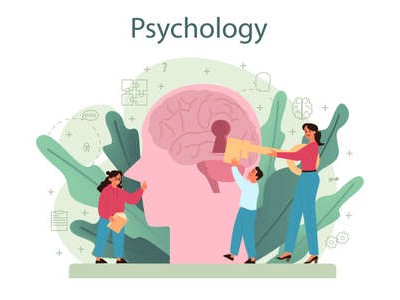
Can Anxiety Lead To Depression Psychologist Ashmore (07) 5539 9798
Isabella Whittingham Registered Psychologist Ashmore

Introduction: Depression Definition Psychologist Ashmore Near Me
Anxiety and anxiety are 2 of the most typical mental health disorders that individuals deal with today. While they might seem like different conditions, they are often interconnected and can have a considerable effect on an individual's overall well-being. In this short article, we will check out the connection in between anxiety and depression, the symptoms related to each condition, and what actions people can take to handle and get rid of these challenges.
Understanding Anxiety and Depression
What is Anxiety?
Anxiety is a natural action to tension or risk. It is identified by feelings of unease, concern, and fear about daily scenarios. While it is normal to experience stress and anxiety from time to time, chronic anxiety can disrupt everyday activities and effect one's quality of life.
What is Depression?
Depression, on the other hand, is a state of mind disorder that affects how you feel, think, and deal with everyday activities. It goes beyond normal sensations of sadness or grief and can persist for weeks, months, or even years. Depression can make it tough to operate in different locations of life, consisting of work, relationships, and self-care.
The Connection In Between Anxiety and Depression
Anxiety and anxiety typically go hand in hand. Lots of people who experience anxiety also struggle with signs of depression, and vice versa. The link between the 2 conditions can be credited to a number of aspects:
Chemical Imbalance: Both anxiety and anxiety are believed to involve an imbalance of neurotransmitters in the brain, such as serotonin and dopamine.
Shared Genetic Aspects: Research recommends that there might be a genetic predisposition for establishing both stress and anxiety and depression.
Stressful Life Occasions: Terrible experiences or significant life occasions can activate both anxiety and anxiety symptoms.
Negative Believing Patterns: Individuals with stress and anxiety tend to have negative thoughts and stress excessively about future events. These thought patterns can contribute to the development of depression.
Physical Signs: Stress and anxiety and anxiety can manifest with comparable physical symptoms, such as fatigue, sleep disruptions, and modifications in appetite.
Symptoms of Anxiety
Anxiety can manifest in numerous methods and might provide different signs in each person. Some common signs of stress and anxiety consist of:
Excessive Concern: Consistent and extreme worrying about everyday situations, even when there is no evident reason for concern.
Restlessness: Feeling on edge or not able to relax, typically accompanied by physical symptoms like shivering or fidgeting.
Difficulty Concentrating: Trouble focusing or staying present due to racing thoughts or preoccupation with worry.
Irritability: Feeling quickly annoyed or agitated, often without a clear cause.
Sleep Disturbances: Sleeping disorders or agitated sleep due to racing thoughts or worries.
Physical Symptoms: Stress and anxiety can likewise manifest physically, causing signs such as quick heartbeat, shortness of breath, lightheadedness, or intestinal issues.
Symptoms of Depression
Depression can differ in severity and discussion from person to individual. Some common signs of depression include:
Persistent Sadness: Feeling unfortunate, empty, or hopeless for an extended duration, typically accompanied by tearfulness.
Loss of Interest: Disliking activities as soon as taken pleasure in and experiencing a lack of motivation.
Changes in Hunger: Substantial weight loss or gain due to modifications in cravings or eating habits.
Fatigue: Feeling worn out and doing not have energy, even after getting enough sleep.
Difficulty Concentrating: Problem focusing, making choices, or remembering details.
Suicidal Thoughts: In extreme cases, depression can result in thoughts of self-harm or suicide. It is important to look for assistance if you experience these thoughts.
How to Manage Stress And Anxiety and Depression
Managing stress and anxiety and anxiety needs an extensive method that attends to both the physical and psychological elements of these conditions. Here are some strategies that can assist:
Seek Expert Aid: Speak with a psychological health professional, such as an anxiety psychologist in Surfers Paradise, who can offer an accurate medical diagnosis and develop a customized treatment plan.
Medication: Sometimes, medication might be prescribed to help handle symptoms of anxiety and depression. A qualified healthcare provider can figure out if medication is necessary.
Therapy: Cognitive-behavioral treatment (CBT) and other evidence-based therapies can help people recognize unfavorable idea patterns, establish coping systems, and enhance total well-being.
Self-Care: Participate in activities that promote self-care, such as routine exercise, practicing relaxation methods (e.g., deep breathing or meditation), guaranteeing sufficient sleep, and keeping a well balanced diet.
Social Assistance: Connect to good friends, household, or support system who can provide understanding and encouragement during tough times.
Avoid Drug abuse: Drug abuse can aggravate signs of stress and anxiety and anxiety. It is essential to avoid self-medicating with drugs or alcohol.
Frequently Asked Questions
- Anxiety is identified by excessive concern and fear about daily scenarios, while depression includes consistent sensations of unhappiness or hopelessness that affect everyday functioning.
- Yes, stress and anxiety is thought about a mental disorder when it disrupts life and causes significant distress.
- Signs of depression in men may include irritation, anger or aggression, increased risk-taking behavior, drug abuse, or physical signs like headaches or gastrointestinal issues.
- While there is no definitive remedy for stress and anxiety and depression, they can be efficiently managed and treated with the ideal combination of treatment, medication, and self-care strategies.
- Yes, anxiety is a mental illness defined by consistent sensations of sadness, despondence, and a loss of interest in activities as soon as enjoyed.
- Offer support and support, listen without judgment, and encourage them to look for expert aid. Educate yourself about their conditions to much better understand their experiences.
Conclusion
Anxiety and depression are complicated conditions that frequently coexist and can considerably affect an individual's wellness. Understanding the connection in between these 2 conditions is essential for efficient treatment and management. By seeking expert help, practicing self-care, and constructing a strong support group, individuals can take steps towards overcoming stress and anxiety and anxiety and regaining control over their lives. Remember that you are not alone in this journey, and there is expect a brighter future.
Do I Have Depression Psychologist Ashmore
Severe Depression Psychologist Ashmore Near Me
Isabella Whittingham Registered Psychologist Gold Coast
Surfers Paradise Chiropractic Centre-Dr. Bruce Whittingham
12 Thomas Drive, Surfers Paradise QLD 4217
(07) 5539 9798
https://surfersparadisechiropractic.com.au
Coping With Anxiety And Depression Psychologist Ashmore Near Me